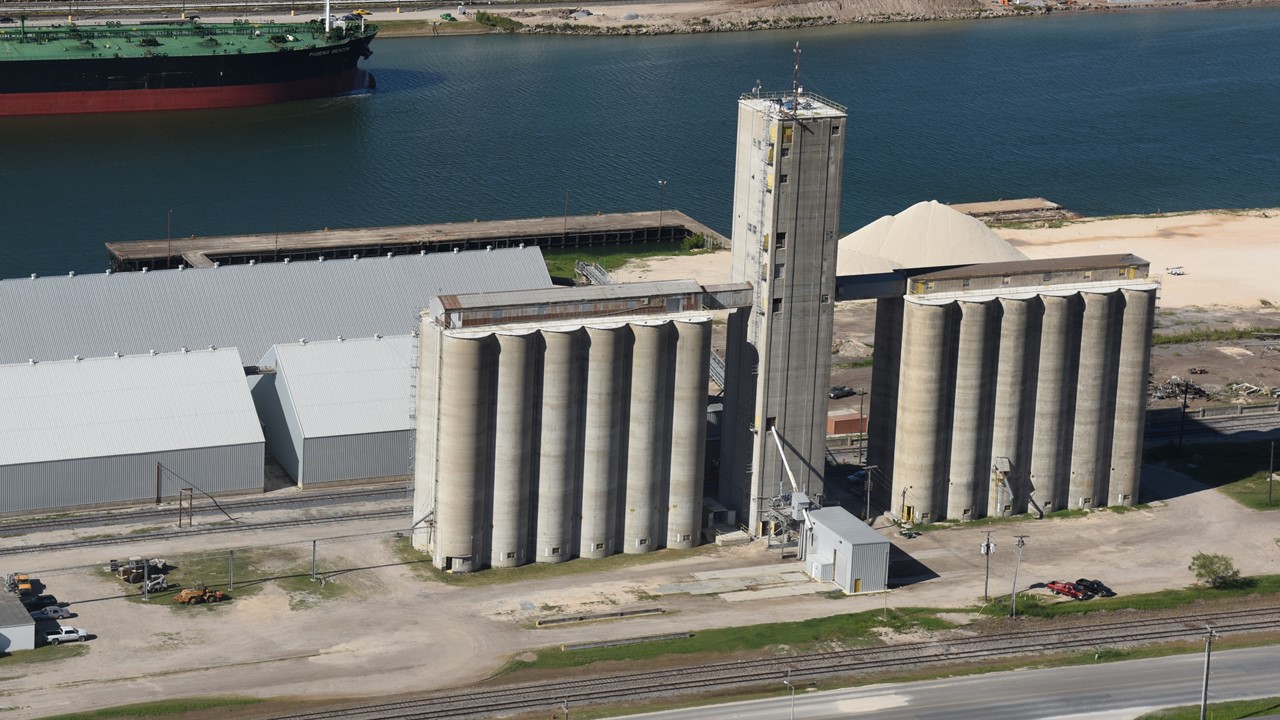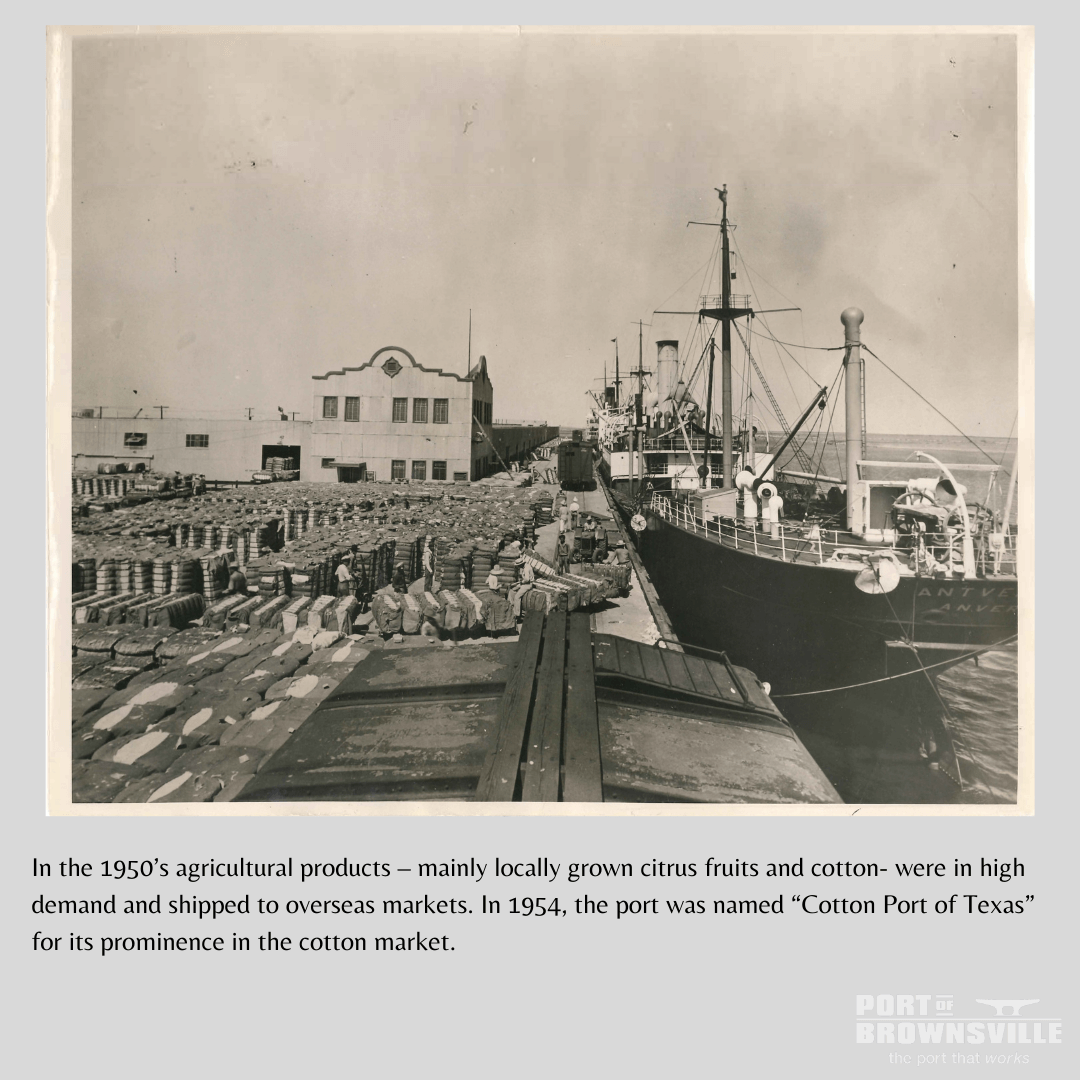Expansion to Grow Agriculture Opportunities and Support Farming Families Throughout the Region
BROWNSVILLE, Texas – Wednesday, October 14, 2020 – The Port of Brownsville is reclaiming its status as a major exporter of agricultural products after receiving a $14.5 million grant from the U.S. Department of Transportation to improve efficiency and safety of its grain storage and loading facilities.
The grant, deriving from the DOT Maritime Administration (MARAD) Port Infrastructure Development Program, supports the development, expansion and upgrade of the port’s three-million-bushel grain elevator operated by WestPlains, LLC.
The project consists of fixed landside, rail, and road improvements, as well as related planning and other development activities. Once completed, the improvements will create a new cost-efficient option for all grain producers from the Rio Grande Valley and other parts of Texas and the U.S. to export goods around the world via the Port of Brownsville.
“This grant demonstrates the federal government’s confidence in the Port of Brownsville and its commitment to support all industries across the Rio Grande Valley,” said Brownsville Navigation District Chairman John Reed. “We are thankful for all the support received from Senator John Cornyn, Congressman Filemon Vela, Congressman Vicente Gonzalez, Secretary of Transportation Elaine Chao, our Texas state delegation, as well as Cameron County leadership and other local public officials and businesses. Their efforts were instrumental in accomplishing our goal to provide local farmers a direct access to worldwide markets.”
Beyond its growing agricultural operations, the Port of Brownsville ships more steel into Mexico than any other U.S. port. The port also is a major conduit for windmill components for installation throughout the Southwest.
“I am pleased that the U.S. Department of Transportation has awarded the Port of Brownsville over $14 million to support a project which will provide an efficient and safe export outlet for South Texas farmers,” said Congressman Filemon Vela. “The Port of Brownsville is a major exporter of steel, aluminum and wind energy products in South Texas, and I look forward to seeing how the port will benefit from this grant to restore its business in agriculture.”
WestPlains and the port entered into an agreement in 2016 to modernize and enhance the operational efficiency of the specialized dock, with the port investing $5 million in the project. The privately-held company has already made significant investments in Phase 1 of its improvement strategy at the facility and plans to demonstrate further confidence with significantly larger investments in Phase 2 to maximize capacities of WestPlains’ Brownsville home. The company currently handles more than 300,000 metric tons of grains, including yellow corn, dried distillers grain, sorghum, milo and sugar.
Through this investment and with the port’s structural improvements to the adjacent specialized bulk cargo dock – and after a 13-year pause in grain exports at the port – the facility began sorghum exports to China in August. WestPlains received the Chairman’s Award in 2018 in recognition of the port investments and contributions to the economic growth of the region.
“WestPlains is very excited and grateful for receiving the port infrastructure grant from MARAD,” said Amit Bhandari, Chairman & CEO of WestPlains. “We have a lot of demand from our customers to export sorghum, wheat, animal feed ingredients, and other commodities. Even during COVID-19 times, making the best our current facility’s limitations, we’ve already sold five ships full of U.S. grains for export. When we complete the buildout of the new loading infrastructure, we’ll be growing this business many-fold, which will result in more jobs in Brownsville and a more competitive export channel for Texas farmers.”
The Port of Brownsville continues to grow as the major economic engine for families throughout the Rio Grande Valley, driving economic growth regionally and across Texas. The Port of Brownsville generates $3 billion in annual economic impact and more than $200 million in annual tax revenues, supporting more than 51,000 jobs across Texas, including 8,500 in the Rio Grande Valley.

The Port of Brownsville is reclaiming its status as a major exporter of agricultural products after receiving a $14.5 million grant from the U.S. Department of Transportation to improve efficiency and safety of its grain storage and loading facilities.








